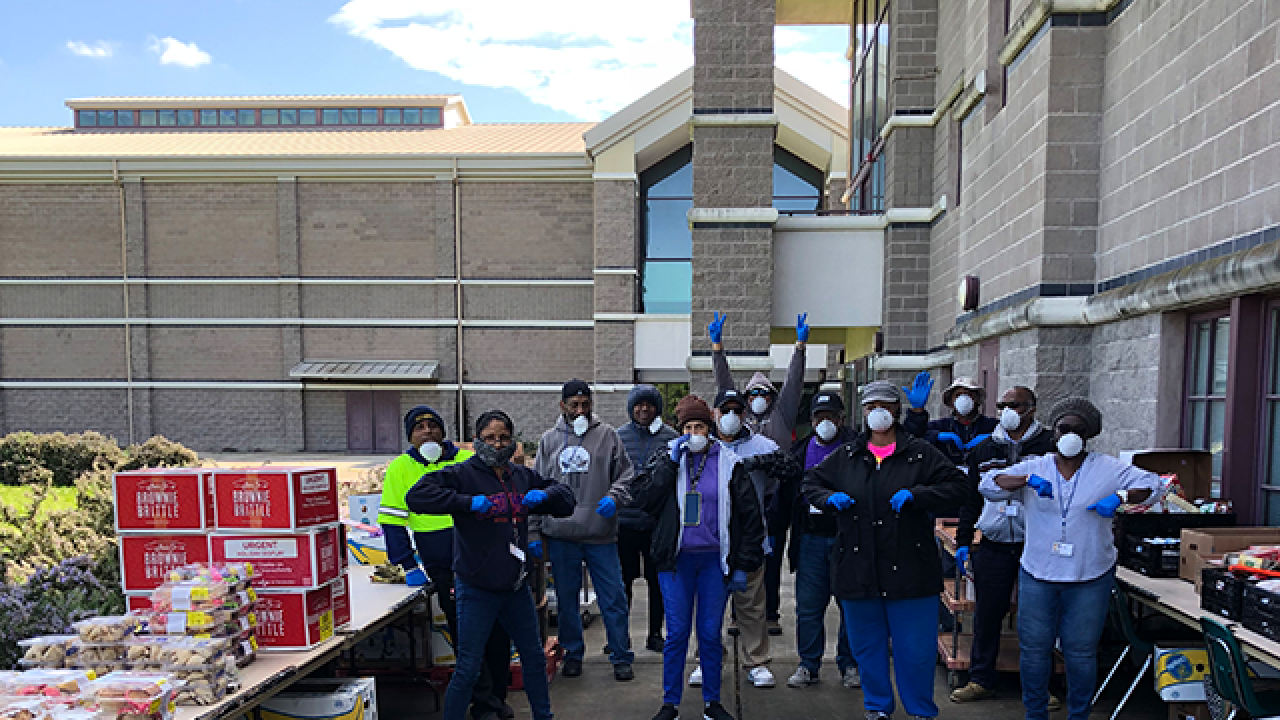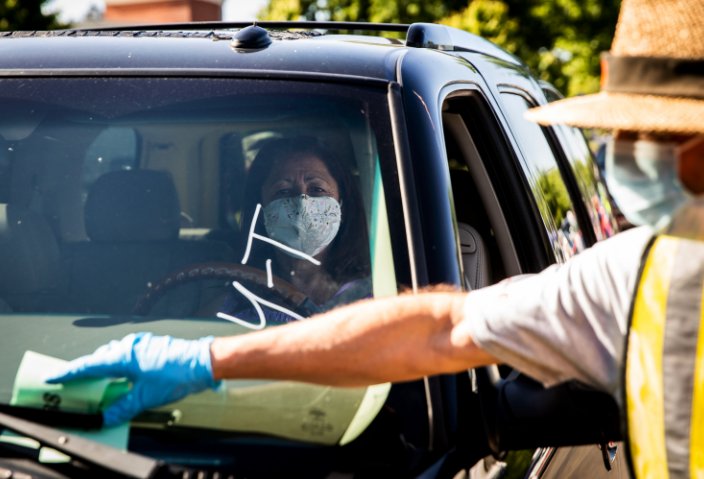
Food Banking, Volunteers and A Pandemic: A Recipe for Flexibility
When UC Davis instructor Marcella Gonsalves and Sacramento Food Bank and Family Services (SFBFS) Partner Agency and Community Engagement Manager Rosie Cerna were notified in March 2020 they received a Public Impact Research Initiative grant, they had to temper their excitement. They were excited because the grant would help them further study volunteer management issues that SFBFS' partners had identified and use the information to plan for improvements. Partners encountered issues like a lack of available volunteers to distribute food, volunteer risk management concerns during food distributions, and challenges recruiting new volunteers. However, Gonsalves and Cerna knew that they needed to delay their research because SFBFS was facing a new, alarming obstacle: COVID-19.
When the pandemic reached the Sacramento region, SFBFS staff immediately went into crisis management mode to address the extreme need and soaring unemployment rates. SFBFS and its partners had to get food to 300,000 families per month—three times the number of families they were serving before the pandemic—and quickly.
Volunteers continued to be an issue, but not for the same reasons before the pandemic. Cerna saw that SFBFS and its partners, like so many other food banks around the country, encountered new challenges to volunteering. New social distancing and safety guidelines, such as wearing personal protective equipment, changed some of their food distribution protocols. Making matters more complicated, many pre-COVID volunteers were seniors, in high-risk categories and could not volunteer due to the risks. Cerna and SFBFS' partners quickly found volunteers who could help, but they continue to address the pandemic's challenges.

‘This is not what a food bank was designed to do’
On a recent Thursday morning, a drive-through food bank popped up on the campus of Christian Brothers High School in Sacramento, California. Serving 8,000 people weekly at two locations, the Sacramento Food Bank & Family Services drive-through operation is just one example of Northern California’s response to high food insecurity, which has been exacerbated by the coronavirus pandemic.
Although Cerna and Gonsalves placed the research project on hold for a few months, it gave them time to incorporate a much-needed research strand in the study on food distribution volunteer management during COVID-19. The study is now exploring issues before and during the pandemic.
By incorporating this strand, the study's results will be more comprehensive and equip SFBFS' partners with more data to develop thorough volunteer management plans. Similarly, the results may inform a broader plan in the coming years for emergency food distribution in Sacramento County. The results may also help more general audiences learn about volunteers during a pandemic. "The existing literature on food distribution volunteer management during a sustained crisis is limited, so we now see our study as an opportunity to contribute some new knowledge," Gonsalves said.
"This pandemic threw us for a loop, but there are two things I know about food banking: be flexible and recognize your blessings. Every. Day." Cerna said.
